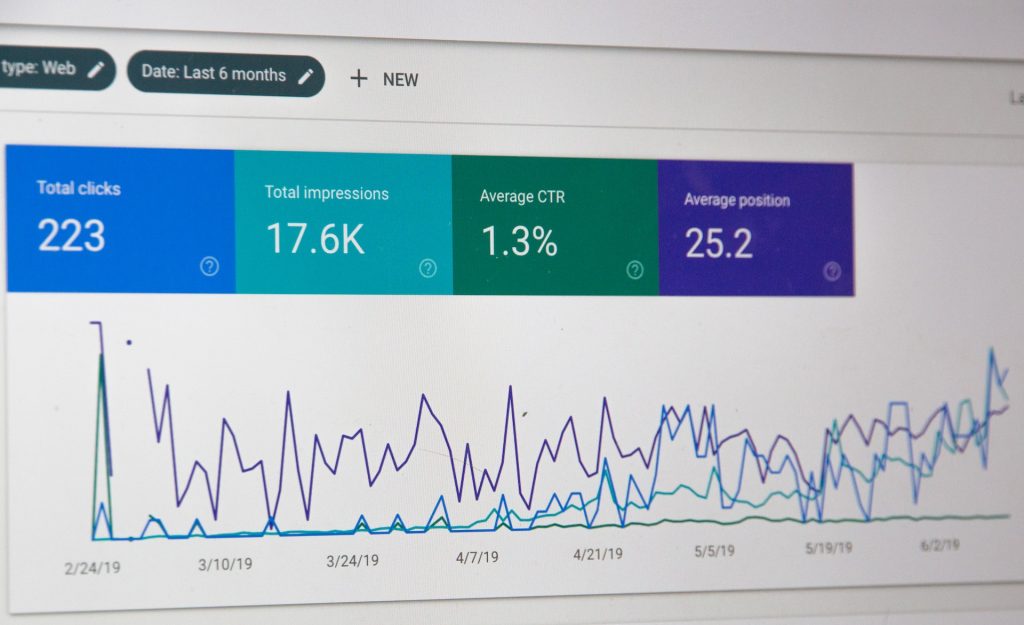Robin Khokhar
Robin Khokhar is an SEO specialist who mostly writes on SEO. Thus sharing tips and tricks related to SEO, WordPress, blogging, and digital marketing, and related topics.
Tailored SEO Strategies for Different Websites Navigating the diverse digital landscape requires recognizing that not all websites are created equal, each necessitating...

Image Credits: unsplash
Tailored SEO Strategies for Different Websites
Navigating the diverse digital landscape requires recognizing that not all websites are created equal, each necessitating a customized SEO strategy. Whether you’re managing an e-commerce platform, a personal blog, or a software-as-a-service (SaaS) website, understanding your specific audience and industry dynamics is imperative.
In the realm of SaaS, for instance, you need to focus on building an effective SaaS SEO strategy. Emphasizing feature-focused content, addressing user pain points, and incorporating industry-relevant keywords such as “cloud-based solutions” or “software integration” becomes paramount. Implementing clear calls-to-action, coupled with a user-friendly interface, is vital for converting website visitors into customers. Work with an experienced SaaS SEO agency to create a strategy that will instantly improve your website’s organic traffic and boost sales.
Recognizing the nuances of different website types ensures that SEO efforts are not only effective but also align seamlessly with the goals and expectations of the respective online platforms.
Thorough keyword research forms the cornerstone of any successful SEO strategy. Keywords are the building blocks that connect users with your content. Begin by identifying relevant keywords related to your niche using various tools. Take into account the search volume, competition, and user intent linked to each keyword.
Long-tail keywords, which are more specific phrases, often yield better results as they capture user intent more accurately. Once identified, strategically incorporate these keywords into your content, meta tags, and headings. Regularly update your keyword list to stay current with changing trends and user behavior, ensuring your content remains optimized for the latest search queries.
Content is king, and producing high-quality, relevant content is crucial for SEO success. Search engines give preference to content that aligns with user intent and delivers value. Create in-depth, informative, and engaging content that addresses the needs and queries of your target audience. Diversify your content types, including blog posts, infographics, videos, and podcasts to cater to different user preferences.
Consistently refresh your content to incorporate the most up-to-date information and ensure ongoing relevance. Additionally, prioritize readability and user experience by using concise paragraphs, subheadings, and multimedia elements. Quality content not only attracts visitors but also encourages natural backlinking, a key factor in search engine algorithms.
Delving into the intricacies of on-page optimization unveils a meticulous process of refining various elements across your website, a transformative endeavor aimed at heightening its visibility in the discerning eyes of search engines. Begin this orchestrated journey by meticulously optimizing your meta tags, comprising the title tag, meta description, and header tags. Craft compelling and succinct meta descriptions, serving as enticing invitations that beckon users to click and explore the depths of your site.
The foundation of on-page prowess lies in a website structure that seamlessly aligns with user expectations. Craft an environment that is not just user-friendly but also effortlessly navigable, guided by clear and descriptive URLs that map the user’s journey intuitively. Elevate the user experience by optimizing images through descriptive alt text, reducing file sizes to enhance loading speed, and embracing responsive design tailored for mobile users.
Transcend conventional optimization by implementing schema markup, an invaluable tool that provides nuanced context to search engines about your content. This strategic addition empowers search engines to comprehend and showcase your content with enhanced relevance. By meticulously attending to these on-page elements, you orchestrate a symphony of enhancements that reverberate through your website, culminating in an elevated SEO performance that resonates across the digital landscape.
In the ever-evolving arena of digital marketing, staying ahead of the competition demands a deeper understanding of advanced SEO techniques. Beyond the basics, delve into the world of schema markup intricacies and structured data optimization. Leveraging schema.org, you can provide search engines with richer context about your content, leading to enhanced snippets and more visibility in search results.
Additionally, explore advanced on-page optimization strategies. Beyond meta tags, experiment with advanced HTML elements, such as canonical tags, to cater to a global audience and eliminate duplicate content issues. Uncover the power of dynamic rendering to serve optimized content to search engine bots, ensuring that your site’s performance is not hindered by JavaScript-heavy designs. As algorithms evolve, embracing these advanced SEO tactics ensures your website maintains a competitive edge in the digital landscape.

In the eyes of search engines, backlinks—inbound links from other reputable websites—stand as a substantial ranking factor. Develop a robust backlink-building strategy to increase your site’s authority and credibility. Seek opportunities for guest posting on relevant blogs, participate in industry forums, and leverage social media to share your content.
Focus on earning high-quality, authoritative backlinks rather than pursuing quantity. Partner with influencers or industry leaders to gain exposure and backlinks. Additionally, regularly audit your existing backlinks to identify and disavow any potentially harmful links that could negatively impact your site’s SEO.
In the pursuit of backlinks, the emphasis must transcend mere quantity, focusing intently on the quality and authority of each link. Forge symbiotic relationships with influencers or industry leaders, leveraging their stature to garner exposure and authentic backlinks. Through this strategic partnership, your site gains not just visibility but also an endorsement that resonates with discerning audiences.
Navigate the backlink landscape with vigilance, conducting regular audits of your existing links. Unearth potential pitfalls by identifying and disavowing any links that may cause harm, safeguarding your site from the perils that could tarnish its SEO standing. In the dynamic ecosystem of backlinks, it’s the nuanced pursuit of quality and strategic partnerships that elevates your site, ensuring sustained SEO success.
Technical SEO involves optimizing the backend of your website to enhance its performance and make it more accessible to search engines. Perform routine site audits to pinpoint and rectify issues like broken links, duplicate content, and crawl errors. Ensure your website has a secure HTTPS connection, as Google prioritizes secure sites in its rankings.
Improve website speed by compressing images, leveraging browser caching, and minimizing server response times. In addition, create and submit an XML sitemap to search engines to help them understand the structure of your website. Implementing structured data markup, such as schema.org, can also enhance the display of your content in search results.
As voice-activated devices proliferate, optimizing your website for voice search is no longer an option but a requisite. Successful voice search SEO demands a change in your keyword strategy, emphasizing natural language inquiries and conversational expressions. Customize your content to address specific questions users may articulate verbally, anticipating the detailed and conversational nature of voice searches.
Consider incorporating schema markup tailored for voice search to assist search engines in better comprehending and indexing your content for spoken queries. Give precedence to local SEO initiatives, as voice searches frequently exhibit a strong local intent. Delve into the incorporation of FAQs and structured data to increase your likelihood of appearing in voice search results. Embrace this transformative shift in user behavior, and your website will not only endure but flourish in the age of voice-activated search technologies.
Beyond implementation, the effectiveness of your SEO efforts hinges on the ability to measure results and make informed adjustments. This section delves into the significance of comprehensive analytics, tracking key performance indicators (KPIs), and utilizing data-driven insights to refine and optimize your SEO strategy continually. By embracing a proactive approach to monitoring and adjusting, you ensure that your website not only attracts organic traffic but also maintains and enhances its search engine rankings over time.
Additionally, staying abreast of industry trends and algorithm updates is crucial for staying ahead in the dynamic field of SEO. Regularly updating your strategy based on emerging trends and search engine algorithm changes ensures that your website remains competitive and adapts to evolving user behaviors, ultimately maximizing its visibility and impact in the online landscape.
In the dynamic digital landscape, mastering SEO is crucial for online success. A holistic approach involving the strategies mentioned above boosts organic traffic and search engine rankings. Adapting to algorithm changes and user behavior is vital for sustained success. Stay informed, embrace best practices, and consistently optimize your website to navigate online competition. SEO is an ongoing process, and today’s efforts lead to increased traffic and improved online presence tomorrow.